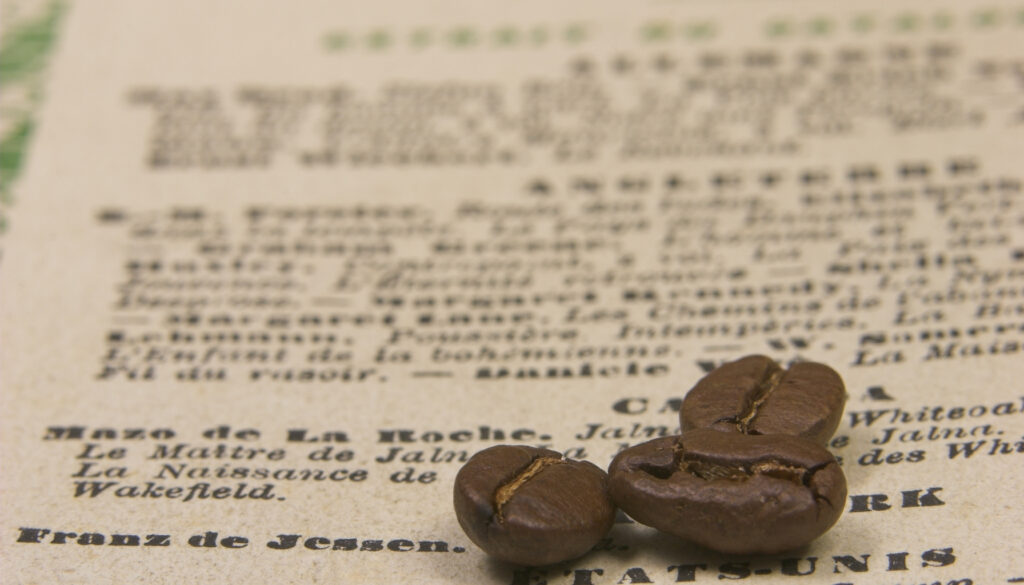Coffee, often regarded as the elixir of life, takes many forms around the globe. Among the diverse varieties, one stands out for its unique preparation process and luxury status—Kopi Luwak. This intriguing coffee not only offers an exceptional flavor profile but also embodies a fascinating narrative intertwined with its origins, preparation methods, and ethical considerations. As we delve deep into the world of this extraordinary beverage, prepare to embark on a journey through lush coffee plantations, ethical dilemmas, and the rich culture surrounding this rare delicacy.
1. The Origins of Kopi Luwak
The story of Kopi Luwak begins in the lush landscapes of Indonesia, particularly on the islands of Sumatra, Java, and Sulawesi. Coffee cultivation in these regions dates back to the 18th century when Dutch colonists introduced coffee farming. However, it wasn’t until the early 20th century that the unique process involving the Asian palm civet emerged, giving rise to what we now recognize as Kopi Luwak.
This coffee’s distinctiveness lies not just in its geographical origin but also in its method of production. Local coffee farmers noticed that civets, small cat-like mammals, would consume ripe coffee cherries and subsequently excrete the beans. The fermentation process that takes place in the civet’s digestive tract enhances the beans’ flavor, resulting in a coffee experience unlike any other. The journey of Kopi Luwak starts here, in the heart of Indonesia, where nature and tradition intertwine.
2. Understanding the Coffee Bean Selection
Not every coffee bean can become a part of the Kopi Luwak narrative. Only the finest, ripest cherries attract the attention of the civet, who carefully selects the best fruits. This selection process is vital because it directly impacts the quality and taste of the final product. Farmers often pick cherries by hand to ensure they meet the high standards that lovers of luxury coffee expect.
The beans that emerge from the civet’s digestive system undergo a unique transformation. The fermentation process softens their flavor profile, yielding a coffee that boasts a rich, smooth taste with low acidity. This careful selection and fermentation contribute to the allure that Kopi Luwak holds among coffee aficionados.
3. The Art of Harvesting and Processing
Once the civets have done their part, the next phase involves meticulous harvesting and processing. Farmers collect the excreted beans, which are then thoroughly washed to remove any residue. This step is critical, as cleanliness ensures the final product remains free from impurities that could diminish quality.
Following the washing, the beans undergo a drying process under the sun or in special drying facilities. Proper drying is essential because it helps lock in the flavors developed during fermentation. After drying, the beans are hulled to remove their outer layers before they are roasted, leading to the aromatic coffee beloved by connoisseurs.
4. The Unique Brewing Methods
Kopi Luwak’s exceptional taste also stems from its brewing methods. While traditional coffee brewing techniques apply, enthusiasts have developed unique approaches to maximize the coffee’s flavor. For instance, using the pour-over technique allows for precise control over water temperature and brewing time, enhancing the aromatic profile of the coffee.
Additionally, many aficionados recommend brewing Kopi Luwak in a French press. The immersion brewing method allows the oil and flavors to fully extract from the beans, creating a distinctly rich cup. Such attention to detail in the brewing process reflects the luxurious experience that Kopi Luwak provides.
5. The Flavor Profile of Kopi Luwak
The flavor profile of Kopi Luwak captivates coffee lovers worldwide. It often exhibits a combination of chocolatey, earthy, and fruity notes, creating a complex yet harmonious balance. With its low acidity, this coffee provides a smooth mouthfeel, making it particularly enjoyable for those who prefer a milder brew.
Moreover, the beans’ unique fermentation process contributes to an overall aroma that may feature hints of caramel and spices. Such richness in flavor entices enthusiasts to savor each sip, transforming a simple coffee moment into an exquisite tasting experience.
6. Exploring Ethical Dilemmas
While Kopi Luwak is celebrated for its unique qualities, ethical concerns permeate its production. Many producers prioritize civet welfare, aiming to create humane conditions. However, the demand for this rare coffee has led to the rise of unethical practices, including the caging of civets in deplorable conditions.
To combat these issues, it becomes imperative for consumers to conduct thorough research. Supporting certified producers who practice sustainable farming and prioritize animal welfare ensures that the enjoyment of Kopi Luwak does not come at the expense of ethical integrity. The journey toward a truly luxurious cup lies in mindful consumption.
7. The Price of Exclusivity
Kopi Luwak often commands a staggering price tag, making it one of the most expensive coffees in the world. The rarity of the beans, combined with the labor-intensive production process, contributes to its luxury status. Prices can range from $100 to over $600 per pound, placing this coffee firmly within the realm of indulgence.
While the cost may deter some, true coffee connoisseurs view Kopi Luwak as a unique experience worth the investment. The intricate flavors, exceptional quality, and exclusive nature of this coffee offer a sense of indulgence that elevates the coffee-drinking ritual to an extraordinary level.
8. International Recognition and Popularity
Kopi Luwak’s rich history and complex flavors have garnered international recognition. Coffee fairs and gourmet festivals often feature this unique brew, drawing attention from coffee lovers and experts alike. Renowned establishments serve Kopi Luwak, presenting it as a luxury item that speaks to refined taste and exclusivity.
Moreover, social media platforms have played a pivotal role in popularizing this coffee. Influencers and coffee aficionados share their experiences, sparking curiosity and demand among a broader audience. The allure of Kopi Luwak continues to captivate those seeking unique experiences in the realm of coffee.
9. The Role of Tourism in Kopi Luwak Production
Tourism has also significantly impacted the production of Kopi Luwak. Many coffee plantations in Indonesia offer tours, allowing visitors to witness the unique process firsthand. Such experiences not only educate tourists about Kopi Luwak but also provide essential income for local farmers.
However, increased tourism does pose challenges. As visitors flock to experience the charm of Kopi Luwak production, some plantations prioritize profit over quality and ethical practices. Therefore, tourists must remain vigilant, ensuring they support establishments that adhere to sustainable and ethical standards.
10. Brewing the Perfect Cup at Home
For those who wish to enjoy Kopi Luwak at home, the journey to brewing the perfect cup begins with sourcing quality beans. Purchasing from reputable suppliers ensures authenticity and quality. Once procured, investing in quality brewing equipment becomes equally essential.
Whether using a high-end espresso machine or a classic pour-over setup, attention to detail remains crucial. Adjusting factors such as water temperature, grind size, and brewing time can significantly influence the final flavor. These small adjustments transform a simple cup into a luxurious experience.
11. Pairing Kopi Luwak with Gourmet Cuisine
To fully appreciate the nuances of Kopi Luwak, pairing it with gourmet cuisine elevates the tasting experience. The coffee’s rich, complex flavors complement a variety of dishes, enhancing the overall indulgence. For instance, pairing Kopi Luwak with dark chocolate desserts creates a symphony of flavors, where the coffee’s earthy notes harmonize with the chocolate’s richness.
Moreover, brunch enthusiasts often enjoy Kopi Luwak alongside savory dishes. The coffee’s low acidity allows it to pair exquisitely with eggs, cheeses, and various meats. Such thoughtful pairings enhance the coffee experience, inviting individuals to savor the exceptional qualities Kopi Luwak offers.
12. Cultural Significance and Traditions
In Indonesia, coffee holds profound cultural significance, with Kopi Luwak standing as a symbol of luxury and tradition. Coffee rituals often accompany social gatherings, strengthening bonds among friends and family. Serving Kopi Luwak is seen as a gesture of hospitality, showcasing the host’s refined taste.
Additionally, the coffee industry in Indonesia supports local livelihoods, allowing families to continue traditions passed down through generations. The art of coffee cultivation and preparation reflects a deep-rooted cultural heritage that enriches the experience of enjoying Kopi Luwak.
13. The Science Behind Kopi Luwak
Exploring the intricate science behind Kopi Luwak adds another layer of appreciation. The fermentation process activated by the civet’s digestive enzymes alters the coffee’s chemical composition, resulting in its unique flavor profile. Studies have shown that this natural process enhances specific compounds while diminishing others, explaining the coffee’s smoothness.
Understanding this scientific angle not only enriches the narrative of Kopi Luwak but also demonstrates the delicate balance of nature involved in producing such a luxurious beverage. As coffee enthusiasts, appreciation for these nuances fosters a deeper connection with each sip.
14. Sustainable Practices in Kopi Luwak Production
Many producers are recognizing the importance of sustainable practices to protect both the environment and civet populations. Organic farming and shade-grown coffee cultivation help preserve ecosystems, ensuring that wildlife and agriculture coexist harmoniously. These practices also promote the health of the soil, leading to better quality coffee.
Supporting sustainable Kopi Luwak production becomes a shared responsibility among consumers, producers, and the industry at large. As awareness grows, the hope lies in fostering a movement that prioritizes ethical sourcing while maintaining the luxurious essence of this unique coffee.
15. The Future of Kopi Luwak
The future of Kopi Luwak appears optimistic, with shifts in consumer awareness driving changes in production practices. As more individuals seek ethical and sustainable options, producers are adapting to meet these demands. The rise of specialty coffee shops and online retailers specializing in ethically sourced Kopi Luwak signifies a growing market for conscious consumption.
Additionally, innovations in farming techniques and technology may enhance the production process. As the industry evolves, Kopi Luwak may continue to enchant coffee lovers, promising a future filled with rich flavors and ethical enjoyment.
16. How to Taste Kopi Luwak
Tasting Kopi Luwak involves more than just sipping; it encompasses an experience of appreciation for its complexity. Begin by observing the coffee’s visual aspects—its color and aroma. Swirl the coffee gently in your cup, releasing its fragrant notes. As you take your first sip, focus on the flavors unfolding on your palate.
Consider the coffee’s mouthfeel and the aftertaste it leaves. Take your time, allowing each element to register. Tasting Kopi Luwak becomes a journey of exploration, revealing the intricacies that define its allure.
17. Celebrated Cafés Serving Kopi Luwak
Around the globe, luxurious cafés and coffee houses proudly serve Kopi Luwak, elevating the café experience to new heights. Establishments in major cities, from New York to Tokyo, showcase this exquisite coffee, inviting patrons to indulge in its unique flavors.
Moreover, many cafés offer tasting flights, allowing coffee enthusiasts to compare Kopi Luwak with other specialty coffees. Such curated experiences enhance appreciation while providing an avenue for exploration within the world of premium coffee.
18. The Community of Kopi Luwak Lovers
The allure of Kopi Luwak has fostered a vibrant community of coffee enthusiasts. Online forums, social media groups, and coffee clubs connect individuals who share a passion for this unique brew. These platforms allow aficionados to discuss sourcing, brewing techniques, and tasting experiences, enriching their knowledge.
Beyond digital communities, local meetups and tasting events often occur, inviting enthusiasts to connect over their love for Kopi Luwak. Such gatherings foster camaraderie and a shared appreciation for the art of coffee.
19. Delving Into Coffee History
To fully appreciate Kopi Luwak, one must delve into the broader history of coffee. The journey of coffee cultivation spans centuries, originating in Ethiopia and traveling across the globe. Understanding this history enriches the narrative of Kopi Luwak, revealing how this unique coffee fits into the larger coffee tapestry.
Historical figures, trade routes, and cultural exchanges all played significant roles in shaping coffee as we know it today. The story of Kopi Luwak is simply one of many fascinating chapters in a rich history that continues to evolve.
20. The Allure of Kopi Luwak: A Lasting Legacy
Kopi Luwak remains a captivating symbol of luxury and exclusivity in the coffee world. Its unique production process, flavor profile, and cultural significance contribute to its allure. As consumers become more conscious of ethical sourcing and sustainability, the legacy of Kopi Luwak continues to adapt, promising a future where indulgence meets integrity.
Each cup of Kopi Luwak weaves a story, connecting people to the rich traditions of coffee cultivation and the natural beauty of Indonesia. By appreciating this exquisite coffee with mindfulness and respect, we not only indulge in a luxurious experience but also contribute to preserving its legacy for future generations. The enchanting world of Kopi Luwak invites you to immerse yourself in its rich narrative while savoring the artistry of exceptional coffee.
21. Coffee Certifications and Quality Control
In today’s market, quality control becomes paramount, especially with products like Kopi Luwak. Different certifications, such as Fair Trade, Rainforest Alliance, and organic certifications, can help ensure that the coffee purchased aligns with ethical and quality standards. Each certification brings a level of assurance concerning the sustainability of the practices and the welfare of the workers involved in its production.
Consumers should actively seek out these certifications when purchasing Kopi Luwak. By doing so, they can ensure that their coffee not only tastes exceptional but also supports ethical practices. Makers of Kopi Luwak who adhere to these standards contribute positively to environmental sustainability and the local economy.
22. The Role of Social Media in Kopi Luwak’s Popularity
Social media platforms have profoundly impacted how coffee enthusiasts share their experiences and knowledge. Instagram, for instance, serves as a visual feast, showcasing not just the beauty of a well-crafted cup of Kopi Luwak but also the stories behind its production. Influencers and bloggers who specialize in coffee often share their brewing ceremonies, tasting notes, and ethical sourcing information, which educates their audience and enhances appreciation for this unique drink.
Additionally, these platforms allow smaller producers to reach a global audience. By using hashtags like #KopiLuwak and engaging with followers, coffee farmers and producers can tell their stories, fostering a connection between consumers and the people behind their favorite brew.
23. Health Benefits of Kopi Luwak
While the focus often lies on the luxurious aspects of Kopi Luwak, it is also essential to highlight its potential health benefits. Like many other coffees, Kopi Luwak contains antioxidants, which can combat free radicals in the body. These antioxidants may help reduce inflammation and lower the risk of certain diseases.
Moreover, enjoying a moderate amount of coffee can provide various benefits, including improved mental alertness and enhanced physical performance. However, moderation is key, as excessive consumption can lead to negative side effects. Engaging in mindful coffee drinking encourages a balanced approach to enjoying Kopi Luwak.
24. Conclusion: The Multifaceted World of Kopi Luwak
In conclusion, understanding Kopi Luwak requires looking at its multifaceted nature—from its origins and production methods to its ethical concerns and cultural significance. As you appreciate each cup of this luxurious coffee, recognize the stories and processes that have brought it to your table. By choosing to engage with Kopi Luwak, you participate in a narrative larger than a simple beverage. You support sustainable practices, enjoy an exceptional flavor experience, and connect with a rich cultural heritage that deserves recognition and respect.
The allure of Kopi Luwak continues to grow as it evolves with the times, embracing both tradition and innovation. Whether enjoyed at home or in a trendy café, this unique coffee remains a symbol of indulgence and sophistication, inviting all to savor its unparalleled charm.


